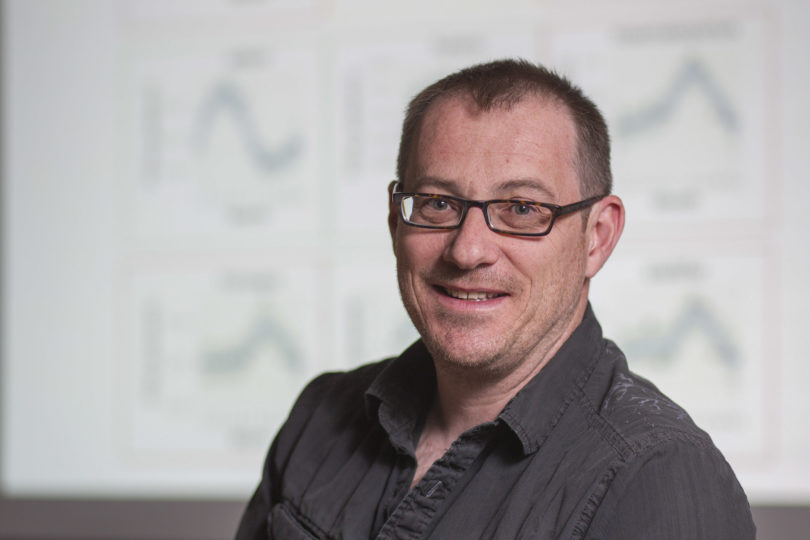Many ecologists will say that they spent their childhoods exploring fields and forests or splashing through streams—but not Andrew Park.
“As a boy I loved writing computer programs,” he said. “I’d hack into games to see how they worked. I noticed they used probability, like rolling dice or tossing coins, and I’d re-create those things.”
Today Park, an associate professor in the Odum School of Ecology and the College of Veterinary Medicine’s infectious diseases department, still is creating computer programs. But instead of games, he develops models to explain and predict host-parasite interactions in emerging infectious disease systems.
Disease ecology, a rapidly growing field that is a focus at the Odum School, takes a big-picture approach to understanding how, when and where infectious disease outbreaks occur-knowledge that can help public health officials predict, and even try to prevent, future outbreaks. It involves combining information about the ecological context in which diseases emerge with biological data about pathogens and their hosts.
Park, who focuses on population-level disease dynamics, was drawn to UGA by the strength and collaborative nature of the infectious disease faculty here, and particularly the opportunity for a joint appointment in the Odum School and the College of Veterinary Medicine. His route to Athens, however, was circuitous.
He studied chemistry and math as an undergraduate.
“I had no interest in biology,” he said-that is, until a mathematics lecturer used equations during a demonstration to determine how to deliver insulin to avoid causing diabetic shock.
“That was a real eye-opener,” he said. “Mathematics instantly became relevant. It put me on the path to exploring the links between math and biology.”
He went on to earn his doctorate at Cambridge University, modeling the spatial spread of a fungal disease in plants. He then took a postdoctoral position in the zoology department there, where he researched influenza.
“I received some good advice, which was to find the best people and work with them,” he said. That strategy took him around the world to conduct postdoctoral research with mentors in Canada, Australia, Switzerland and France, before bringing him to Athens in 2008.
At UGA, Park had his first experience with teaching-and, despite some initial misgivings, discovered that he enjoyed it.
A Lilly Teaching Fellowship helped him develop less traditional teaching techniques, which he now employs in the classroom and lab.
“In our lab, we like the peer teaching approach,” he said. “It’s less hierarchical, everyone teaches everyone, and that includes me getting lessons from my students here and there.”
He’s also found that working with students enriches his research.
“I was initially hesitant about involving undergraduates in research-it’s not the British tradition I grew up with,” he said. “But now I’ve published with several of them and some of their work has fed into grant proposals and research collaborations.”
That research covers a variety of disease systems. Since arriving at UGA, Park has explored questions such as how mismatched vaccines influence the likelihood of a flu epidemic, how changes in land use affect the spread of hemorrhagic disease in white-tailed deer and how differences in seasonal temperature variations relate to the prevalence of Lyme disease across the U.S.
Although the subject matter has changed, Park still is driven by the same curiosity that prompted him to program his own computer games as a 10-year-old.
“When I look at infectious diseases, I see them as puzzles that have to be solved,” he said. “And I’ve always enjoyed solving puzzles. To work on something that’s so tangible and relevant is really appealing to me.”





